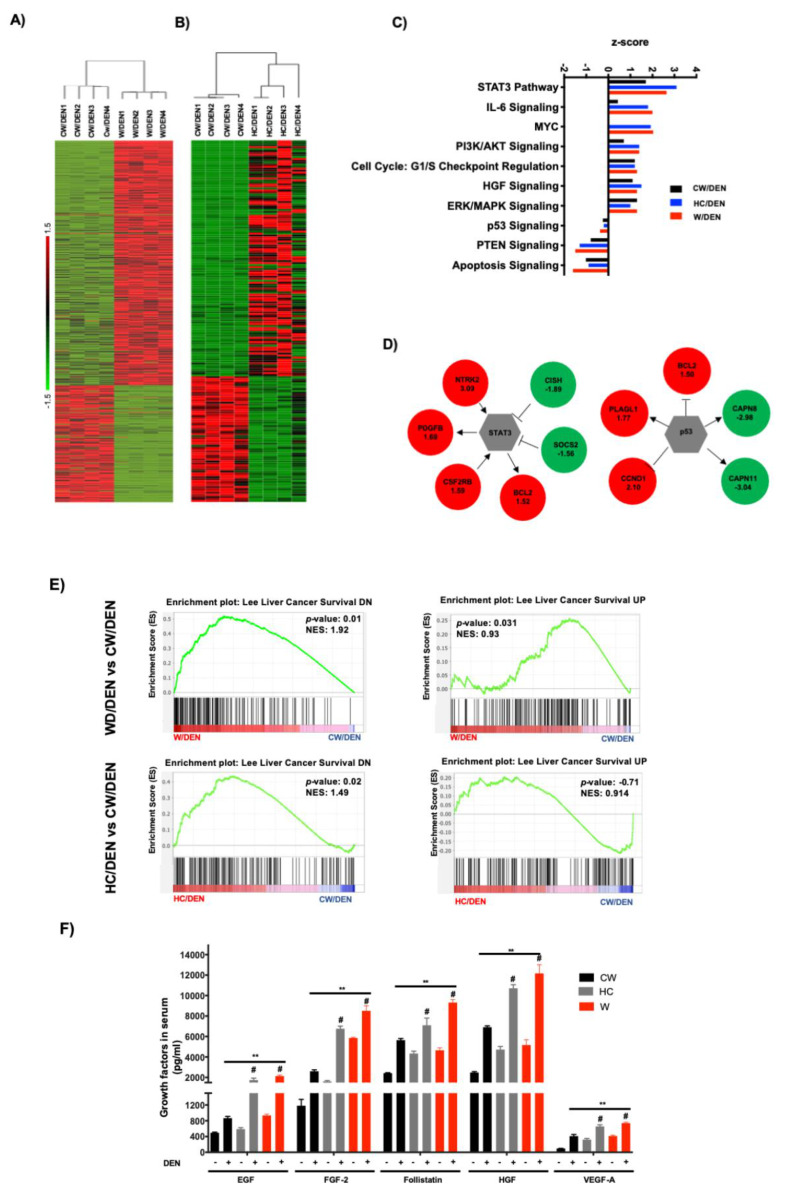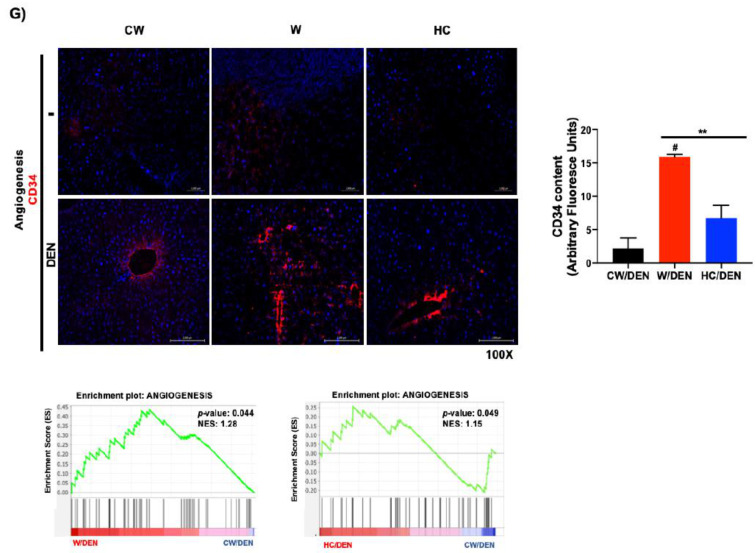Figure 3.
Tumors from lipid-enriched diets exhibit a profound change in gene expression favoring survival and proliferation signaling pathways and decreasing key tumor suppressor routes. Tumor tissues from mice fed with chow diet and injected with a single dose of N-nitrosodiethylamine (DEN, 10 μg/kg, i.p.) (CW/DEN), mice fed with Western diet and injected with a single dose of DEN (W/DEN), mice fed with HC diet and injected with a single dose of DEN (HC/DEN) were subjected to RNA-sequencing as stated in Material and Methods. (A) Heatmaps showing the good separation of (A) W/DEN tumors vs. CW/DEN and (B) HC/DEN tumors vs. CW/DEN red and green colors indicate high and low gene expression, respectively (n = 4). (C) Process networks analysis in tumors from CW/DEN (black), high cholesterol HC/DEN, (blue) and W/DEN (red) (n = 4). The top rank-ordered processes and networks are based on statistical significance (p < 0.01). (D) Expression targets of Stat3 and p53 in tumor signature. (E) Gene set enrichment analysis (GSEA) of liver cancer survival (down and upregulated) data sets comparing tumors from W/DEN and HC/DEN to CW/DEN. (F) Growth factors serum concentration of all mice groups. Proteins were determined by based multiplex immunoassay (n = 4). Each bar represents the average ± SEM ** p < 0.01 vs. CW group; # p < 0.05 vs. W diet alone group. (G) Angiogenesis was judged by immunofluorescence of CD34, representative images of four animals. Original magnification, 100X. Quantification of CD34 fluorescence and GSEA of angiogenesis, data set comparing W/DEN and HC/DEN to CW/DEN (n = 4).


